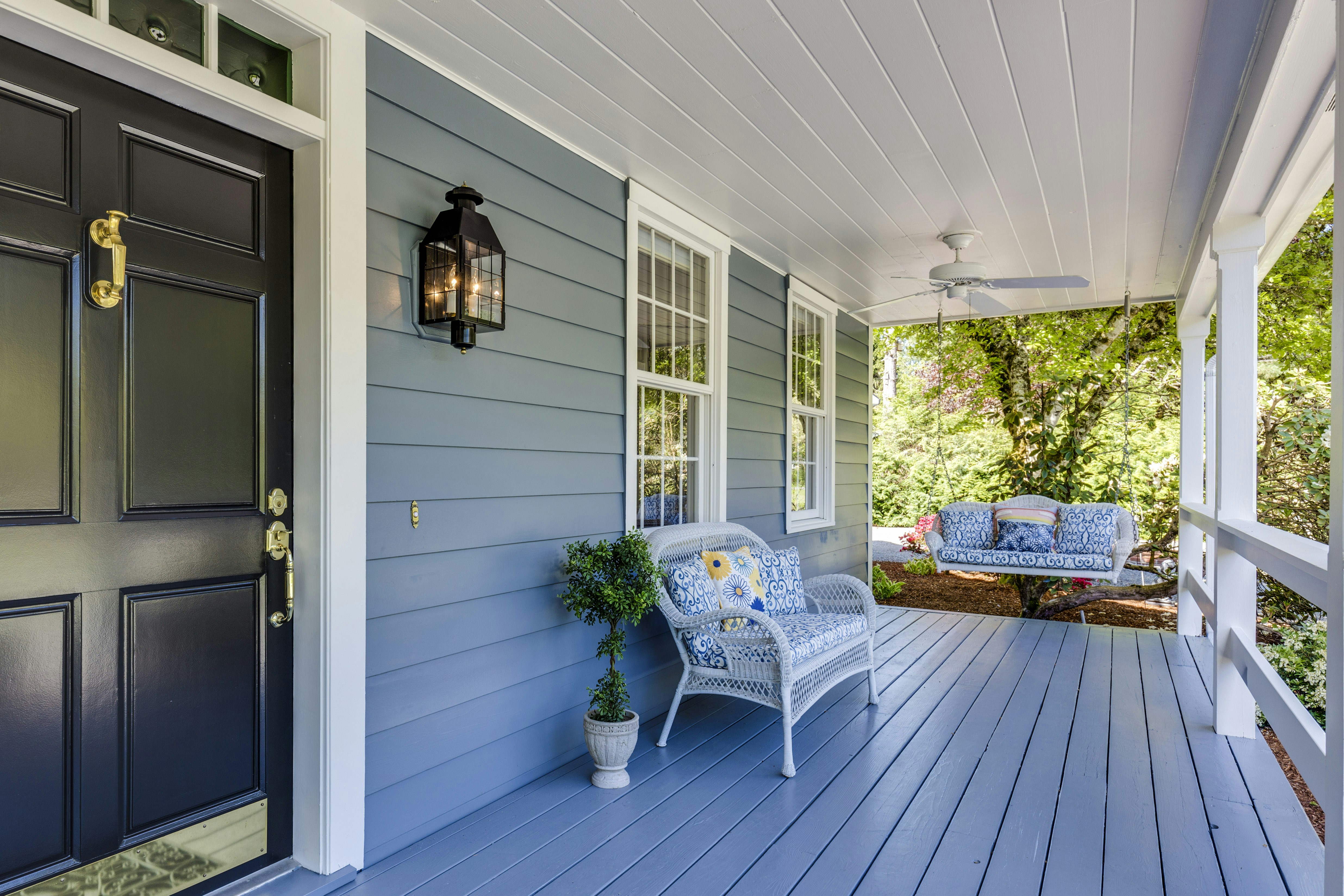According to a recent study, renting a home rather than owning one may have an impact on the aging process. The study found that renters showed signs of faster “biological aging” compared to homeowners who owned their homes outright. Although the impact was relatively small, it was greater than the effects of unemployment or being a former smoker. Interestingly, the link between accelerated aging and renting was primarily seen among those who rented privately, as opposed to public housing. These findings suggest that the physical conditions and insecurities associated with private rentals may contribute to faster aging. This study highlights the importance of secure and high-quality housing for overall health and well-being.

Renters May Age Faster Than Homeowners
Renting a home may speed up the body’s aging process
Renters may experience accelerated biological aging compared to homeowners, according to a recent study. The research suggests that individuals who rent their homes, particularly in private rentals, may age faster at the cellular level than those who own their homes outright. This finding sheds light on the impact of housing circumstances on overall health and longevity.
Biological aging is determined by certain physiological markers
Biological aging refers to the natural process of the body’s cells and tissues aging over time. It is influenced by various factors, including genetics, lifestyle choices, and environmental factors. The study focused on a specific biological marker called DNA methylation, which is responsible for regulating gene activity. Changes in DNA methylation have been linked to the aging process and can provide insights into an individual’s biological age.
Link between faster aging and renting privately
The study found that individuals who rented their homes privately showed signs of faster biological aging compared to those who owned their homes. This association was not observed among individuals living in public housing, suggesting that the housing conditions themselves play a significant role in the accelerated aging process among renters. Factors such as the physical condition of the housing and the insecurity associated with private renting contribute to this phenomenon.
Impact of housing conditions on aging
The physical conditions of housing can have a direct impact on an individual’s health and well-being. Poorly maintained homes, exposure to pollutants, and other environmental factors in privately rented housing may contribute to faster aging at the cellular level. Additionally, the stress and insecurity experienced by renters in private housing can further accelerate the aging process. It is essential to consider housing conditions as a crucial determinant of health outcomes.
Stress and insecurity of private renting can contribute to faster aging
Private renters often face higher levels of stress and insecurity compared to homeowners. Uncertainty around rent payments, the possibility of eviction, and the lack of control over their living situation can take a toll on renters’ mental and physical health. Chronic stress has been linked to various health conditions and can hasten the aging process. Therefore, the stress and insecurity associated with private renting may be contributing factors to faster biological aging observed in the study.
Housing circumstances can affect people’s health in direct and indirect ways
The impact of housing on health extends beyond the physical conditions of the home. Housing circumstances can affect an individual’s ability to access healthcare, afford medications, and maintain a healthy lifestyle. Living in inadequate or unaffordable housing can create barriers to managing chronic conditions and exacerbate health disparities. Recognizing the interconnectedness between housing and health is essential for policymakers and public health officials.
Differences between public housing in the U.K. and the U.S.
It is worth noting that the findings of the study are based on data from the United Kingdom. Public housing in the U.K. is often better maintained, more affordable, and more stable compared to private rentals. The contrast between private renting and public housing highlights the importance of addressing housing quality and stability as a means to improve health outcomes. It remains unclear whether similar findings would be observed in the context of public housing in the United States.
Less secure, lower-quality housing associated with poorer health outcomes
The study findings emphasize the association between less secure and lower-quality housing and poorer health outcomes. Housing conditions play a crucial role in determining an individual’s overall well-being and can contribute to chronic health issues. Inadequate housing, such as exposure to toxins or living in substandard conditions, can exacerbate respiratory problems, allergies, and other health conditions. Improving housing quality is imperative for promoting better health outcomes for all individuals.
Housing insecurity and homelessness linked to accelerated aging
The most extreme form of housing insecurity, homelessness, is known to be associated with accelerated aging. Homelessness exposes individuals to harsh living conditions, inadequate nutrition, and increased stress levels, leading to premature aging. Homeless individuals may experience health issues typically seen in older adults well before the average age. Recognizing the impact of housing insecurity and homelessness on accelerated aging underscores the urgency of addressing these issues on a broader scale.
Policy intervention needed to improve housing quality
The study’s findings highlight the need for policy intervention to enhance housing quality and address housing insecurity. By prioritizing secure and affordable housing, policymakers can improve the overall health and well-being of individuals. Investing in public housing, implementing regulations to ensure housing standards, and providing rental assistance programs are key steps toward creating healthier housing environments. By addressing the housing needs of individuals and families, policymakers can combat the negative health effects associated with inadequate housing.
Study Methodology and Findings
Study conducted on 1,420 U.K. adults
To investigate the association between housing circumstances and biological aging, the study involved 1,420 adults from the United Kingdom. These participants provided information on their housing arrangements, income, education level, and health-related factors. The study aimed to identify potential links between housing circumstances and biological aging markers, specifically DNA methylation.
Participants gave information on housing circumstances and health factors
The participants in the study shared detailed information about their housing circumstances, including whether they were homeowners, rented privately, or lived in public housing. In addition to housing data, participants provided information about their income, education level, smoking habits, body weight, and any chronic medical conditions. By considering these various factors, the study aimed to isolate the association between housing circumstances and biological aging.
Marker of biological aging: DNA methylation
For the purposes of the study, DNA methylation was used as a marker of biological aging. Researchers analyzed blood samples from the participants to measure DNA methylation levels. Changes in DNA methylation patterns can indicate the rate at which an individual’s cells and tissues are aging. By examining DNA methylation, the study sought to identify any differences in biological aging between homeowners, public renters, and private renters.
People living in private rentals showed faster biological aging
The study revealed that individuals who rented their homes privately exhibited signs of faster biological aging. Comparing the DNA methylation patterns of private renters to those of homeowners, researchers found that private renters showed accelerated aging at the cellular level. These findings suggest that the housing conditions and stressors associated with private renting contribute to faster biological aging.
No difference between homeowners and public renters
Interestingly, the study did not find any significant difference in biological aging between homeowners and public renters. This suggests that the housing conditions themselves may not be the primary driver of accelerated aging but rather the specific circumstances associated with private renting. Public housing in the United Kingdom tends to offer more stability and better maintenance compared to private rentals, which may explain the absence of accelerated aging among public renters.
Link between private renting and faster aging may be due to housing conditions
The study’s findings indicate that the association between private renting and faster biological aging may be attributed to the physical conditions of the housing. Private rentals often have lower maintenance standards and may expose individuals to pollutants and other environmental contaminants. These factors, combined with the stress and insecurity of private renting, appear to contribute to the observed accelerated aging. Improving the quality of private rentals and addressing housing insecurity are essential for mitigating these adverse health effects.
History of falling behind on rent and exposure to pollutants linked to faster aging
The study also identified specific factors within private rentals that were associated with faster biological aging. Individuals who reported a history of falling behind on rent or living in housing with exposure to pollutants showed signs of accelerated aging. These findings suggest that financial instability and poor environmental conditions may contribute to the accelerated aging process. Addressing these issues within the private rental sector is crucial for promoting healthier aging outcomes.
Implications and Recommendations
Housing circumstances should be a target of policy intervention
The study’s findings underscore the importance of addressing housing circumstances as a target for policy intervention. Policymakers should prioritize initiatives to improve housing quality and stability, particularly in the private rental sector. By implementing regulations and providing incentives for better maintenance standards, policymakers can create healthier living environments for renters. Additionally, rental assistance programs can help alleviate the financial burden associated with renting and reduce the stress and insecurity that contribute to faster aging.
Less secure, lower-quality housing associated with poorer health outcomes
The association between less secure and lower-quality housing and poorer health outcomes emphasizes the need for comprehensive housing reform. Individuals living in inadequate housing conditions face higher risks of developing chronic health conditions, exacerbating existing health issues, and experiencing mental health challenges. By improving housing quality and prioritizing affordability, policymakers can create a foundation for better health outcomes and reduce health disparities.
Housing insecurity affects daily life and medical conditions
Living with housing insecurity can have far-reaching consequences for individuals’ daily lives and medical conditions. The stress and uncertainty associated with housing instability can hinder individuals from managing their health effectively. Difficult choices about rent payments versus medical expenses can lead to unmet healthcare needs and exacerbation of chronic conditions. Recognizing the impact of housing on an individual’s overall well-being is critical for developing policies that prioritize housing stability and affordability.
Homelessness linked to accelerated aging
The study findings align with existing research that showcases the detrimental effects of homelessness on health. Homeless individuals are known to experience accelerated aging, manifesting as physical and cognitive decline earlier in life. Providing access to safe and stable housing for the homeless population is crucial for mitigating the negative health effects associated with accelerated aging. Housing initiatives should prioritize targeted support for the homeless population to promote healthy aging.
Improving housing quality can improve overall health
Improving housing quality has broad implications for overall health and well-being. By ensuring that housing meets adequate standards, policymakers can reduce the prevalence of health issues related to poor living conditions. Access to safe and affordable housing is a fundamental determinant of health, with the potential to positively impact various aspects of individuals’ lives. Investing in housing initiatives and prioritizing policies that address housing quality is essential for fostering healthier communities and empowering individuals to age well.

Conclusion
Renting a home may contribute to faster biological aging compared to homeownership, according to a recent study. The research highlights the influence of housing circumstances on an individual’s aging process at the cellular level. Poor housing conditions, stress, and insecurity associated with private renting have been linked to faster biological aging. Policy intervention is needed to improve housing quality and address housing insecurity as a means of promoting better health outcomes. By prioritizing housing stability and affordability, policymakers can create healthier living environments and mitigate the adverse health effects associated with inadequate housing. Improving housing can lead to improved overall health and well-being for individuals and communities.



